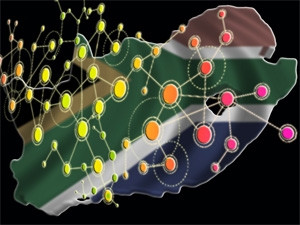
Despite government insisting its ambitious broadband initiative, SA Connect, is still on track, there is little evidence to show such progress.
In July, the Department of Telecommunications and Postal Services (DTPS) said government had started implementing the first phase of SA Connect this financial year.
However, a report by BMI-TechKnowledge (BMI-T) has found progress to date has almost entirely been limited to various uncoordinated initiatives by provinces and metros.
Denis Smit, MD of BMI-T, said: "SA Connect is suffering from a slow start. As we stand today, the milestone targets of 2016 will not be met, the 2020 targets are already at risk, and meeting the 2030 goals will be challenging unless there are course corrections and the programme gathers momentum soon."
SA Connect is government's national broadband policy that aims to provide access to the Internet and improve the quality of citizens' lives. Government aims to roll-out broadband in all areas of the country.
The first phase of the project has set out to connect 1 296 government facilities in eight rural district municipalities to fast, secure and always-available Internet, which is scalable for future demand over three years, until 2017.
"Our Constitution encourages us to improve the quality of life of all citizens... so we see the SA Connect policy fitting in with the constitutional mandate," said DTPS deputy minister Hlengiwe Mkhize.
Funding model
The report by the ICT research and consulting company has questioned the status of broadband roll-out and the targets set by SA Connect.
BMI-T said the aim of the report is to identify opportunities for industry, reality-test the targets and get some idea of the scale of the funding needed to fully implement SA Connect.
According to Smit, it is crucial that industry and government urgently meet to thrash out new funding approaches to the massive investment needed for SA Connect.
Should we not have a realistic discussion around the funding and implementation plan, we fear for the success of SA Connect as a whole, he stated.
"Achieving the goals of SA Connect requires a massive investment in infrastructure" said Smit.
"While there is a wide range in the annual capital requirements depending on prioritisation and choices made, the demands are not unrealistic when contrasted against the current expenditure by the operators (circa R20 billion per annum). However, the peak funding requirement and the lengthy time to become EBITDA (earnings before interest, taxes, depreciation and amortisation) positive are significant and are probably far beyond that which the state - with current funding models - can afford."
Speaking at the Telecommunication & Media Forum on Tuesday, Mkhize explained Telkom is offering government a special average rate of 47% discount on wholesale prices, compared to similar solutions offered by Telkom to its wholesale customer base.
"Telkom's offering will also include a dedicated contact centre to monitor and resolve service disruptions, and a cost-based wholesale price with a negotiated special rate for government that is below any market offer."
During the State of the Nation Address, president Jacob Zuma announced state-owned enterprise Telkom had been chosen as the lead agency to roll-out broadband in the country
Connecting citizens
According to Mkhize, the first phase is to focus on the provision of broadband connection services in eight districts where the national health insurance programme is being piloted.
She added SA Connect will go ahead with Telkom as the lead agency to roll-out broadband. Telkom offers a network platform that is fast, future-proof, provides high quality of service and is scalable, she stated.
"To designate Telkom is simply based on the fact that they have been at the forefront. Telkom has committed to connect 50% of government institutions by end 2016, and 80% by 2019 to speeds of 10mbps," said Mkhize.
Mkhize also clarified that government's designation of Telkom as the lead agency for broadband roll-out does not imply that "we (government) will lose our strategic way of partnering with the private sector and state-owned enterprises and research institutions.
"Moving forward, we will continue to working in partnerships," she said.